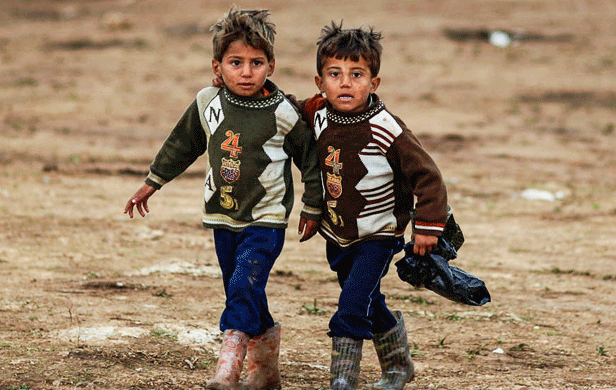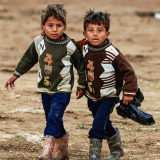
Before starting, let me state that there is no excusing the massacre in Paris, nor 9/11. When it comes to death of innocent civilians there is no equivalency, period.
The Canadian Establishment has always believed that some newcomers are more desirable than others. A small example – my father, aged 7, arrived with his parents in Vancouver in 1914, the same year the Komagata Maru did. They came from New Zealand and were British subjects. The passengers on the Komagata Maru came from India and were also British citizens. My family were white and, nominally Christian – the Indians were not. I needn’t tell you the difference in reception.
Many concerns are raised about the current lot from Syria. They’re Muslims, considered by many to be dangerous in itself. They’re not quite white, although no one mentions that, and there aren’t many Syrian communities where they can settle. Today, I read that these aren’t the best sort of people, all lower class, so we won’t be getting many engineers and doctors.
What an interesting observation! When young people from Asian countries work hard, win scholarships and excel, Canadian parents become distressed that Asian parents demand standards from their kids that are too high!
A history of refugee success stories
Let’s look back to 1956, the time of the Hungarian Revolution, when we took, virtually unscreened, 100,000 refugees. Concerned citizens fretted that these surely included God only knows how many Communist plants ready to upset our way of life. In fact, it did include many ordinary prisoners released by the Hungarian government just to be rid of them.
It has turned out to be a very profitable adventure for both refugees and Canada.
Perhaps we should look at the Vietnamese refugees of a few years ago and, around the same time, Iranian refugees. Again, these migrations have been mutually successful.
Of course, not all immigrants become successful, law-abiding Canadians but, then, neither do all Canadian-born children. There are discombobulations within all new population groups – always have been, always will be.
What about the original immigrants – British and French?
The concern of so many is that they might bring the troubles of their mother countries into our midst. Perhaps it might be useful to talk about that for a moment.
Of course that happens – but let’s not be selective in our recall, rather fair.
The resentment against both the British and French, and the treaty of 1763 which ceded Quebec to England, have left lasting scars reflected in many ways, one being the unwillingness of many Quebeckers to fight in foreign wars. The rest of Canada has got used to this and for the most part ignores it.
What about the English migration to Canada back in the late 19th and early 20th centuries? Nobody ever seems to want to examine that. We should because it led directly to World War I.
In the words of former US Secretary of State James Baker, Canada didn’t have a dog in that fight. It was an idiotic, medieval scrap between ancient enemies over antiquated quarrels led by failing lines of Royalty. Unlike World War II, World War I was about as international as the Franco-Prussian war, with a couple of extra idiots added.
The statistics show that Canadian enthusiasm for this war was almost exclusively in the English speaking areas and dominated by recent English immigrants. It’s not considered fashionable to criticize the English, of course, while the Irish and British citizens from darker-coloured countries are fair game. (To this day English friends speak huffily about “immigrants” as if they themselves somehow weren’t. It pisses me off.)
Irish quarrels, Sikh quarrels, Serb/Croatian quarrels, Polish/Russian quarrels – all un-Canadian. English quarrels, often brutal, racist and aristocratic – quite acceptable, you know.
Two classes of violence
One can’t avoid talking about violence, even though it never excuses retaliatory violence, and it’s instructive to remember that no country in the Middle East ever conquered, occupied, and subjugated France, the UK, or the United States – or Canada for that matter. Meanwhile, people in the Middle East, in fairly recent memory, have been bombed, gassed, and otherwise, cruelly dealt with by those nations – yet somehow that’s considered perfectly appropriate since, after all, they’re European, Christian, and “civilized”. That civilized “enlightenment” rested in the Middle East for centuries until quite recently is overlooked except by scholars. Is it then surprising that people from Middle Eastern countries don’t consider sympathy as a factor when they bomb and kill Europeans who are occupying their countries?
I’m coming close to equivalencies here and I don’t want to do that, so I’ll back away by simply making these observations: Immigration into Canada, from all sources, has made the country strong, prosperous – and interesting. It has brought problems to be sure, but it’s brought in enormous values and virtues as well.
Diverse City
I am often asked about my city, Vancouver, where I was born and raised in the 30s, 40s and 50s. I grew up in a narrow-minded, race-dominated city where “lesser breeds”, in Kipling’s words, were called degrading names and where there was de facto segregation. In World War II, to the applause of the white community and its press, we threw those of Japanese ancestry into concentration camps without the slightest evidence that any had disloyal inclinations.
I now see many nationalities with lovely restaurants, ceremonies, costumes, cultures that we enjoy and learn from. I’m not so naïve as to deny there’s a cost to this and that not everyone is delighted, yet when I look at other countries I consider just how fortunate I am for all of the many cultures we maintain.
I close with an anecdote. In 1993, we had a national constitutional referendum called the Charlottetown Accord. I was working at CKNW and a prominent Indo-Canadian, Moe Sihota, was a provincial cabinet minister who urged members of his community to vote “yes”. Jas Johal who was a colleague, told me that Indo- Canadians would do as Sihota asked. I made a friendly bet that Indo-Canadian communities would vote precisely as other communities did, and so it turned out.
We may not assimilate but we all become Canadians.


Rambling Rafe strikes again. One bone to pick here. I remember The Province’s Eric Nicol departing from his usually humourous column to defend the incarceration of Japanese-Canadians at the start of the war. I don’t remember his precise case and I cannot find the article. I suspect the media does not want to keep unpopular (by today’s standards) articles. I remember David Suzuki reminisce on the joy he and his classmates felt when Japanese armies were stomping on Hong Kong and Singapore. Japan had the world’s most powerful navy.
Must you view past actions throught the lens of political correctness?
Those who yammer on about “Muslim” threat to our “Christian” society seem totally ignorant of Christ’s teachings…they seem to have never heard Love thy neighbour as thyself… do unto others as you would have them do unto you… I was hungry and you gave me food, I was thirsty and you gave me to drink, I was homeless and you took me in… Canada, our “home and native land” is, in fact, Native land. All the rest of us are the children of immigrants.
I don’t always agree with you, Rafe, and I often think you’re just an old gas bag, but I applaud this article.
Gee, Anne, I’m not that old. Only 44 (Celsius) on New Years Eve.
You know, I’ve found that people who must turn to the Bible for their arguments and call other people names are usually not too bright!
Have you noticed that too, Anne?
Lloyd and Pamela each touch on a key point. Culture in modern terms, especially in Canadian terms, is not static but is an amalgam of many ways of life, backgrounds and belief systems which themselves become a recognizable national characteristic. My God! The changes I’ve seen from what I described in my article to what I see when looking at my youngest grandchildrens’ school pictures is truly.unbelievable!
I have been a member of the Vancouver Club for 50 years and the changes in the last 20 must have my father and grandfather spinnng in their graves at the ghastly distortion of “culture”.
Canadian Culture means many cultures and the more the better lest we return to the arrogant self congratulations of birth so sadly – and amusingly – prevalent when male, white Anglicans (I’m all three) ruled the country as of birthright. It’s a bit trickier now but a hell of a lot better!
We can absorb newcomers just as others adjusted to our forbesrs.
So right on, Rafe. We should not overlook all the many positive changes that have taken place in recent decades regarding inclusion, cultural exchange and civil rights.
The fact that in 2015, we are still dealing with racism, tells me we are living in a precivilization. It was leaders like Pierre Trudeau who made a difference, because he believed that people of different nationalities, of different races and religions can not only live together but can thrive. Trudeau did not envision Canada as a melting pot. He said “There is no such thing as a model or ideal Canadian. What could be be more absurd than the concept of an all Canadian boy or girl, A society which emphasizes uniformity is one which creates intolerance and hate” Trudeau believed in a multicultural Canada. When he created The Multicultural Act, it was the only one of it’s kind in the world. He truly was, as he thought of himself a citizen of the world.
Thanks for this long, instructive opinion piece, Rafe. It should not be necessary at this point of world history – in Canada, the United States, Britain, France or many other places – but sadly, it seems like we do need to speak out again and again on the matter. With regard to your citing the “cost” that may come with an open door policy that is equitable to all, we might also put an end to denying that in the new world order that we – yes, all of us – have created and try to sustain, the current trends of immigration, refugees, terror, militarism and environmental degradation are deeply woven together through the economic and social fabric, globally and locally wherever one lives. We had best address the situation in holistic ways that respect both human rights and ecological sanity. We cannot “afford” to do otherwise.